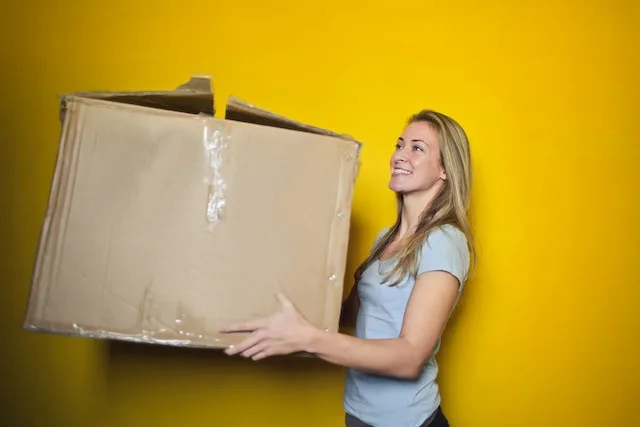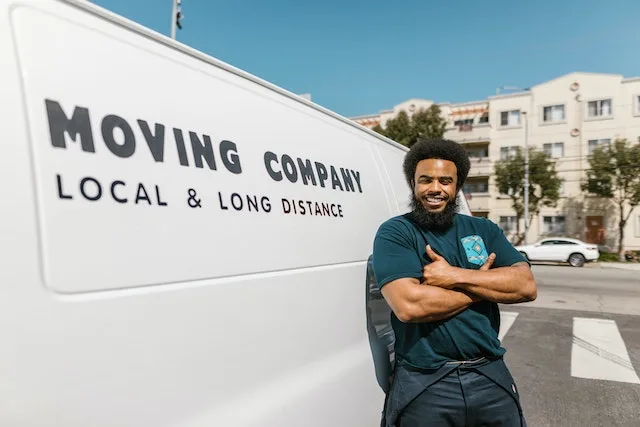Unexpected Moving Expenses and How to Plan for Them

Relocating to a new place can be exciting, whether heading to sunny Florida or venturing out from the Sunshine State to explore other parts of the country. But amidst the excitement and anticipation, unexpected moving expenses can dampen the spirit. However, a little planning can go a long way in turning potential pitfalls into smooth transitions.
1 The Hidden Cost of Packing Supplies
While the excitement of a new home bubbles up, the reality of packing can often bring unanticipated expenses. Beyond the basics like boxes, bubble wrap, and packing tape, there’s a plethora of specialty items to consider, especially for those delicate or uniquely shaped items. Protective packing for artwork, custom boxes for large electronics, and wardrobe boxes for hanging clothes can quickly add up, turning what seemed like a minor task into a significant expense.

To avoid costly surprises, start collecting boxes early from local stores or ask friends who’ve recently moved. Invest in durable packing tape; it might cost a bit more upfront, but it can ensure your boxes stay sealed during the move. Bulk-buying packing essentials like bubble wrap can lead to substantial savings. Always remember that a well-packed item ensures safety and can save on replacement costs later.
2 Surprises with Self-Moving
Choosing the DIY route with a self-move often seems like an economical choice initially. But, beyond the excitement of taking matters into your own hands, numerous expenses lurk beneath the surface. From the initial truck rental fee, one can overlook associated costs like fuel to insurance covering potential mishaps and unexpected penalties for late truck returns. Moreover, there are DIY moving mistakes to avoid, like underestimating packing supplies or not securing items properly, which can lead to damage.
If you’re keen on having a self-move, when budgeting for it, be meticulous and always add a buffer for unforeseen expenses. Ensure timely vehicle returns and account for the complete journey, including stops and refueling, to avoid unnecessary penalties. This proactive approach can prevent unwanted surprises.
3 Professional Touch: Simplifying the Journey
While the idea of a residential move can seem straightforward, professionals will simplify the house-moving process in ways that extend beyond just transporting items. While there’s a cost associated, the potential savings from avoiding damages, not to mention the reduced stress, often outweigh the upfront expense.
So even though it might seem economical initially to handle everything personally, consider the potential costs of damage or breakage. Investing in professionals can sometimes be a more cost-effective choice in the long run.
4 Decoding Fine Print With Movers
Knowing that professionals are your best option doesn’t automatically imply selecting the first mover you come across. The quest to find the right moving company can be riddled with hidden fees that only emerge if you’re not careful. Many moving contracts are laden with terms that can cause bills to inflate—think charges for heavy items, long-carry fees, or even weekend move premiums.

Therefore, always read the fine print thoroughly, and you will avoid unexpected moving expenses. Request a comprehensive breakdown of costs and ensure all potential charges are transparently detailed. This vigilance prevents surprises and guarantees that you’re paying for genuine services, making your move a seamless affair.
5 Unexpected Storage Needs
As moving day approaches, many find themselves in need of temporary storage solutions. Perhaps your new home isn’t ready, or you realize that not everything fits or suits the new space. According to a survey conducted by AmeriSafe Moving Services, an overwhelming number of movers are under budget or don’t budget at all for storage-related costs. These fees aren’t just about the storage unit but also include insurance, transport to and from the unit, and potential extension fees.
To avoid this, the team from AmeriSafe recommends that those planning to move should always factor in possible storage needs. By getting a few quotes from storage facilities in advance, you can preemptively avoid scrambling at the last minute and incurring higher costs. Ensure to inquire about bundled deals or discounts for extended periods, and always consider the accessibility and security of the facility.
6 Don’t Forget Administrative Costs
When relocating, administrative costs and utilities can become significant, often overlooked areas of expenditure. From utility setup fees and potential deposits for services to transferring records or services to a new area, these expenses can add up swiftly. This is especially true if you’re moving with kids and need to account for school transfers or recreation enrollments.
To evade these unexpected hits to your budget, conduct research on standard utility and administrative fees in your new area. Contact local service providers ahead of time to inquire about any potential deposits or initial fees, ensuring a smoother, surprise-free transition to your new home.
7 Pre-Move Home Fixes
Leaving a home in pristine condition is often a prerequisite, whether vacating a rented apartment or selling your owned property. Unexpected expenses emerge in the form of wall repairs, repainting, deep cleaning, or even garden upkeep. Some of these fixes, if left unchecked, can lead to deductions from deposits or reduced home value.
To avoid any unpleasant (and costly) surprises, conduct a thorough home inspection a few weeks before moving. Identify areas needing attention and get quotes for repairs. Often, handling minor fixes yourself can be more economical than leaving it for the landlord or new owner to deduct later.
8 Prioritizing: More Than Just Time Management
The art of moving efficiently hinges on the ability to learn how to prioritize tasks. It’s not just about saving time but also about allocating resources wisely. Every move has elements that can be managed personally and those that might need professional intervention. Recognizing which tasks to handle, from decluttering to setting up utilities in the new home, ensures you use time and money most effectively.

Draft a comprehensive to-do list. Categorize tasks based on urgency and importance. Delegate where necessary, and consider using tools or apps to help stay on track. This way, you can save valuable time and budget better by addressing costs head-on and avoiding last-minute expenses. By prioritizing, you’ll find your move smoother, less stressful, and more cost-effective.
Embracing the Unexpected
Relocating encompasses both excitement and challenges. The unforeseen twists, like unexpected moving expenses, can dampen the joy of a fresh start. However, with a proactive mindset and meticulous planning, you can navigate these challenges seamlessly. Remember, knowledge is the key to turning potential pitfalls into smooth transitions, ensuring your new chapter begins on a positive note.



